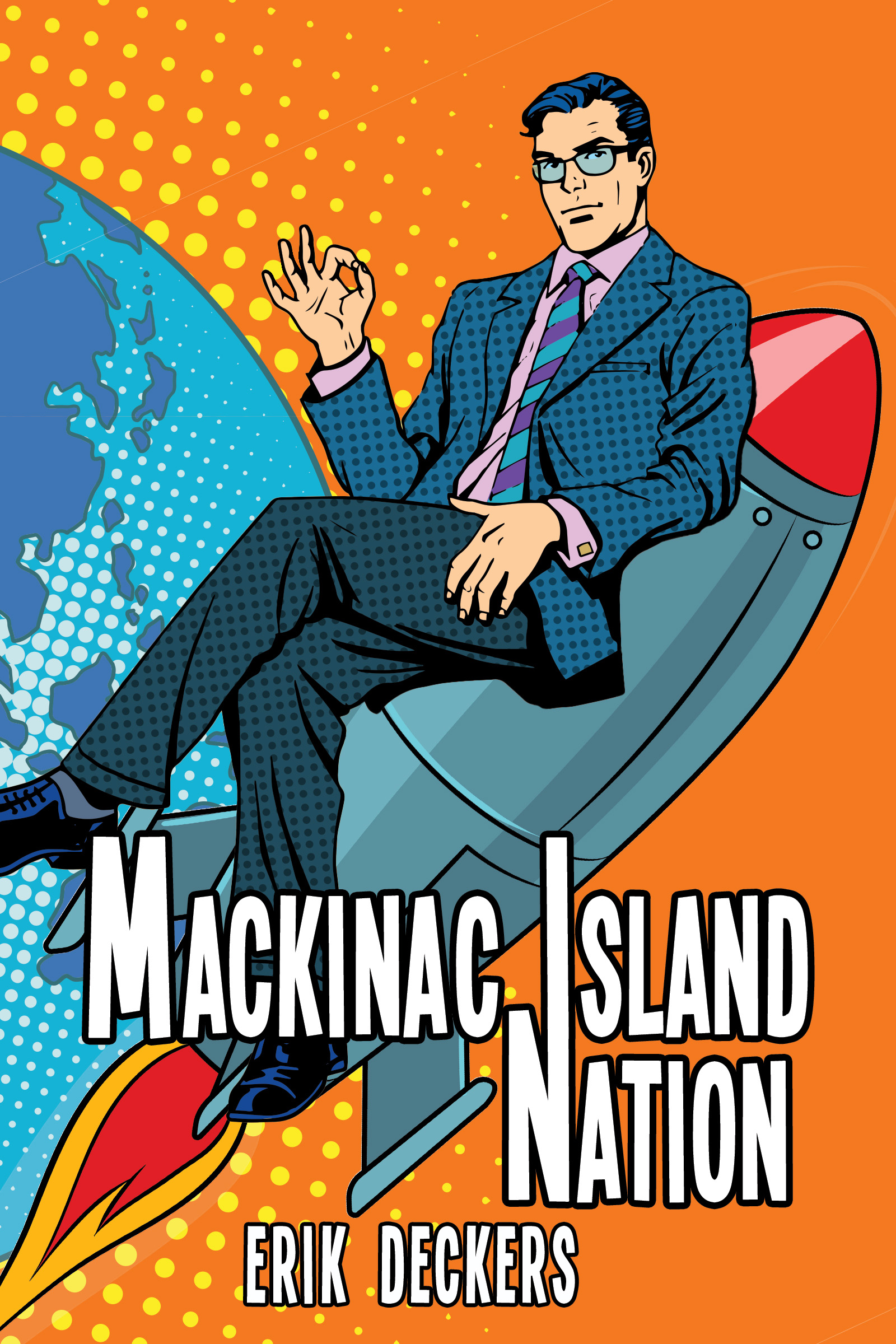
It was 1995, and my wife and I were on a carriage tour around Mackinac Island when I thought, “What would happen if the island got cut off from the mainland? How would they cope?
Mackinac Island is notable in that there are no cars allowed on the island, only horses and bicycles. If you wanted to go anywhere, you rode a horse, rode a bike, or walked.
There are no bridges. The only way to cover the eight-mile distance to the mainland was by ferry or a private boat between Mackinac Island and Mackinaw City. Or a snowmobile in the winter if it got cold enough.
We visited Fort Mackinac, the Iroquois Hotel, the Pink Pony restaurant, and the Grand Hotel — the place where Jane Seymour and Christopher Reeve fell in love across the decades in Somewhere In Time.
The question pinged around in my brain over the weekend. How would people get food? Would they still be able to leave the island? Could people bring in supplies? Would smugglers bring in groceries? Would they build a self-sufficient economy where they didn’t need the outside world?
Vacation ended, but the question never left me. We went back three or four more times, staying in different inns and hotels, and I pondered it for the next 14 years.
Finally, one day in 2014, I started writing:
Pete stared at the fussy man in the gray wool suit sitting across from him. The man constantly adjusted and touched his glasses, and Pete wanted to rip them off his face and stomp on them.
“I don’t know what I’m supposed to do about this,” said Pete. “It sounds like your problem, not ours.”
“Well, this affects us both, Mr. Bidwell,” said the man, touching his glasses again. “And it affects everyone who lives on this island, visits it, or has business interests on it.”
“I don’t see how. It’s a 200-year-old treaty that’s been sitting in a dusty old office somewhere.”
The story didn’t come easily — I’d had 14 years to think of it, but honestly, I hadn’t gone past the opening scene and a few additional scenes that happened later in the story. So I started writing and waiting to see what happened as the story developed — “pantsing” it, as it were.
It was a slog, and I eventually got stuck on chapter 4. I had no idea what should happen next or how the story should progress. I had mentally certain scenes much further into the book, but I had no idea how to get there.
A friend taught me how to plan out the story on index cards, writing one plot point per card and organizing them into chapters and storylines. I learned that little trick about a week before I entered the Kerouac House in Orlando to be the Spring 2016 writer-in-residence, so I knew what I had to do once I got there.
I was dealing with a major case of impostor syndrome when my residency started, and I was sure the board was going to realize they’d made a mistake in choosing me because I wasn’t a “real writer” and were going to kick me out.
So, I buckled down and got to work. I plotted out the entire book on index cards in two days, spent a third day organizing them into chapters, and writing the outline. After that, I got to work.
I wanted to get as much done as I could because any day, the board was going to show up and kick me out. I wanted to be able to say, “No, look! I’ve been working really hard. I got a lot done. Can I please stay?”
But they never came.
They never showed up, never knocked at the door, and never asked me to leave.
In fact, they did the opposite: two months later, they asked me to join the board.
I spent the next three months working on my novel and completed half of it during my time. Then, in 2017, I didn’t touch it. At all. Ever.
Not even to look at it, gaze at it in the moonlight, or stroke its cheek and say, “Soon, my darling.” Because it was on my computer, and that would be weird.
Then, in 2018, I decided, “I’m fucking well sick of this!” and worked on it every weekend. I hung out at Vespr Coffee in East Orlando for four hours every Saturday and Sunday night and pounded away at the book, trying to finish it before the end of the year.
In September, I thought, “I must be halfway finished with this by now.” A first novel is generally about 60,000 words long, and I thought, “Surely, I’m at 30,000 by now.”
I counted up the words for each chapter and discovered I was at 90,000 but still had half the outline to go.
Uh-oh.
I started hacking up the outline, removing sub-plots and minor characters’ storylines, and was able to knock it down to five chapters to go.
I managed to finish the rest of the book before the end of the year and clocked in at 128,000 words.
I self-published the book in April 2019, and four years later, it was picked up by 4 Horsemen Publications, given a brand new cover, and they’re now producing my next novel, Whither, Utopia, while I’m in the middle of writing my third.
I’ve been writing satire and humor ever since a banned books poster told me not to read Slaughterhouse-Five and Catch-22, and I went and read them. Ever since then, I’ve always wanted to write books that make fun of people in power and that contain a lot of swear words.
Little did I know that one of my favorite vacation spots and an idea that bubbled and brewed for twenty years would end up becoming my most favorite book I’ve ever written. I hope you enjoy it half as much as I enjoyed writing it.

